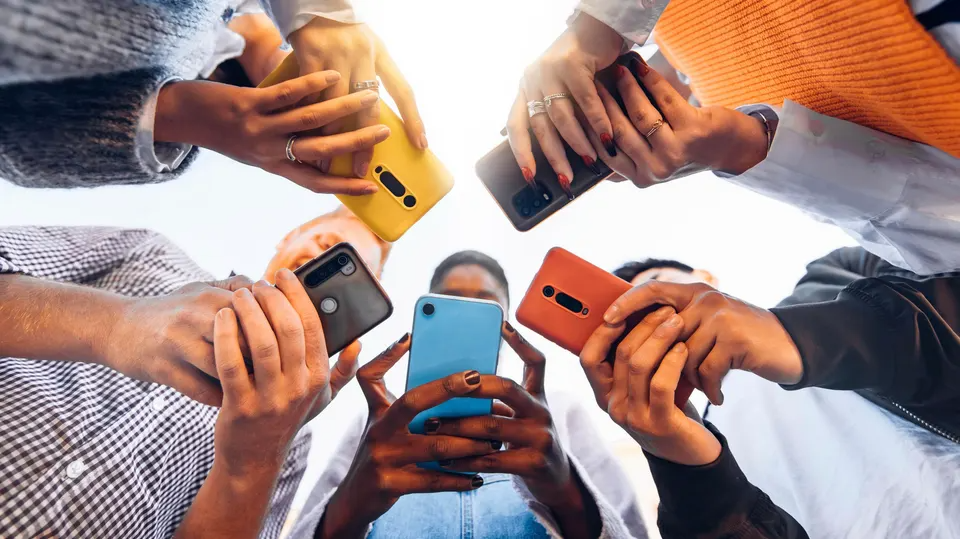Sleep deprivation has become an increasing problem for students worldwide; according to the Centers for Disease Control and Prevention 2019 YRBS survey, “77% of high school students in the U.S. sleep for less than eight hours on school nights.” Imagine something as essential as sleep having to compete with academic success, after-school activities, and entertainment. This article takes a dive into how academic work, extracurriculars, and devices/screen time affect our sleep and how we can cope with it.
The first cause of the high rates of sleep deprivation among students is academic pressure and workload. The result of such pressure and workloads causes students to develop stress and anxiety; according to a 2019 Pew Research Center survey of U.S., 61% of teens say they feel a lot of pressure to get good grades. One of the causes of this pressure among students is the race to secure a spot in a good college. Around 59% of teens want to attend a four-year college after graduation. Nevertheless, studies show that the effects of sleep deprivation make it harder for students to achieve their goals.
The second cause of the high rates of sleep deprivation among students is extracurricular activities and commitments. Extracurriculars have many advantages for students such as skill building and increasing connections. However, a lack of proper time management skills or an unmanageable amount of extracurriculars can have a negative effect on students. According to the American Academy of Sleep Medicine: “being a student involved in extracurricular activities more than ten hours per week was a significant predictor for non-restorative sleep”. Participating in extracurriculars usually results in less time to do tasks and some students make up for the lost time by sleeping less.
The third cause of the high rates of sleep deprivation among students is the increased reliance on technology. Technology is used in many ways that benefit students, but research shows using techs such as phones and laptops before going to sleep, results in decreased sleep quality. A 2014 Sleep in America poll done by the National Sleep Foundation found that 28% of school-aged children and 57% of teenagers who leave an electronic device in their bedroom after bedtime obtained less total sleep and had lower sleep quality. Over time some students have developed a screen dependency or addiction, and this could affect cognitive functions such as problem solving and attention span.
For many students, establishing a balance between academic success, skill building, and sleep can be difficult. “I have a couple of friends who have terrible sleep schedules. During school and work days, they can sleep as late as 2 a.m., 3 a.m., or later, and then have to wake up at 5 a.m. or 6 a.m. for school. On the weekends, they sleep until the afternoon. Sometimes, they have nothing significant to do and stay up late simply out of habit”, said Danjel Saint Fleur. Many students face a heavy workload, pressure to succeed from parents and peers, or lack guidance, time management skills, and prioritization skills. These factors create a situation where students felt like they have to choose between being successful or getting a good night rest.
There are many ways we can approach academics, extracurriculars, and technology use without negatively impacting our sleep. The first method is learning how to prioritize and plan; you can do this by creating a weekly schedule, prioritizing the most difficult tasks, and using apps to keep track of your assignments and deadlines. The second method is practicing good time management. You could try the Pomodoro technique or you could create your technique through trial and error. The third method of coping is practicing self-care, staying connected with a good support system, creating a consistent sleep schedule, trying out stress-relieving activities, not overloading yourself with commitments, reflecting on yourself, and limiting screen time.
In today’s world sleep is often neglected as a result of academic pressures, extracurricular activities, and a growing dependency on technology. By practicing good time management, learning to prioritize and plan, and taking care of themselves, students can move towards a more balanced life.










Melissa Mcdonald • Apr 1, 2025 at 9:57 am
This article can relate to all of us even adults as well this article helps me to, help myself and the stress, these steps actually works.keep up the good work👊🏽.
Patrice Perkins • Oct 23, 2023 at 1:30 pm
Great job of describing sleep famine and the effects they have on today’s generation of teens. I like that this article is very informational and gives a clear description of the struggles, issues, and outcomes of sleep deprivation. I really enjoyed reading about this topic 😉
Alecia • Oct 23, 2023 at 1:26 pm
Great story, there were excellent facts involved and a lot of students can relate to this. It really is exhausting handling schoolwork along with extracurricular activities. The amount of sleep you may end up getting is pretty low making us sleepy during the school day. But the hard work can be beneficial as well allowing us to end up going to great colleges in the end.
Xavi Paxtor • Oct 23, 2023 at 1:22 pm
This article was written very well.It shows different reasons why students sleep late and the perspectives of students on campus.It also shows different ways students can fix their daily schedule in order for them to sleep well.Sometimes I had to stay because of the reasons that were shown in the article such as workload and academic pressure.
Taisha Massy • Oct 23, 2023 at 10:51 am
I really like this article and I agree and I also relate to this article as well. I feel like this was a good explanation as it states quotes from a person who actually experienced or experiences sleep deprivation.
Gyasi • Oct 23, 2023 at 10:49 am
This article is very accurate to how my sleeping schedule works. Some nights I only get 4-5 hours of sleep due to the amount of work I get. I like how other students were quoted into the story. Im glad im not the only one that has this problem and they’re others who have the same problem that I have.
Jeanie • Oct 23, 2023 at 10:48 am
This story is really well written, portraying the students that have different opinions and point of views. Bringing out the problems with sleeping and how students don’t get the sleep they need. Very much contains good information!
guervens • Sep 19, 2023 at 10:51 pm
good story
Brielle • Sep 19, 2023 at 8:27 pm
This article is very accurate to how I feel about my sleep schedule during the week.
Deborah Dorsainvil • Sep 19, 2023 at 8:28 am
I think that this is article relates to a lot of students around the world.
Peter Goldstein • Sep 19, 2023 at 8:28 am
Excellent article. Very important topic.
Great pics as well with quotes.
Jalina • Sep 19, 2023 at 8:28 am
I think this is a really good article and way to bring awareness to the fact that high schoolers don’t get enough sleep.
Christelle Francois • Sep 19, 2023 at 8:27 am
Very nice job Ashley, keep up the great work!
Tabitha • Sep 19, 2023 at 8:26 am
This article is very well written and I liked how informative it was.
Charnie J. • Sep 19, 2023 at 8:24 am
I love this article, I can relate to it so much lol 🙂 good job I enjoyed reading this.
Mariah McNaughton • Sep 19, 2023 at 8:21 am
this is such a good article!!! Good job!!!????????????
Ernesto Nylander • Sep 19, 2023 at 8:16 am
This article was very well written, I like how they have multiple students who share their problems and students who say they get enough sleep to share both sides of the story. I think that it’s great to have the quotes and data to back up your claims and it’s great overall to introduce us all to this widespread problem. I like how you used the conclusion to summarize the issue and also give a solution. I look forward to more in-depth news articles like this one.
Breanna • Sep 19, 2023 at 8:09 am
Ashley ,you did a great job very organized and informative I totally agree.